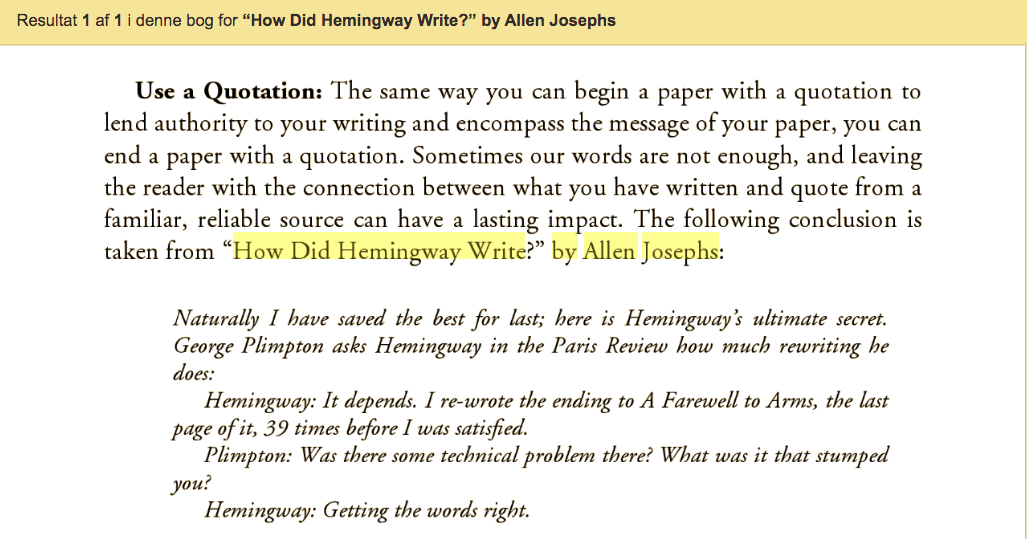“The closest thing I’ve found to a “formula” for good prose was laid out in an article titled “How Did Hemingway Write?” by Allen Josephs.
I would recommend that you read the entire article, but here is the gist of what he laid out as Hemingway’s methodology:
1. Invent from experience. Josephs argues, based on quotes from Hemingway, that all writing has an element of invention in it. He theorizes that writing from experience is essential, but even more so, the ability to combine that experience with imagination and invention to produce a “higher reality”, is what makes good prose.
2. Omit. Josephs describes this as the “iceberg theory”, or the “theory of omission”. He argues that what is depicted in the text should only be the tip of the iceberg, and that the rest of the iceberg, beneath the water, should only be known to the author. This forces the reader to actively engage and interpret the text, and he argues that this is the key to engaging the reader’s imagination, by leaving things out.
3. Visualize. This is one of the most difficult elements to articulate. This is visual imagination as opposed to visual memory. This is something only artists can do- it is not simply a device, and it must come organically. If it is contrived, it won’t work. The best way I can describe this is that this visualization takes place when you cross the threshold in the mind from visual memory (recalling something) to visual imagination (creating something). Essentially the artist or author can visualize something that is not real- it only exists in their minds- and then transpose it onto the page, therefore making it a reality. This is not simply a list of details or description- this is something that determines the flow and power of your piece.
4. Make the reader feel it. It’s precisely what it sounds like. The goal here is to elicit an emotional response from the reader without explanation. This is also known, by Eliot fans and scholars, as the objective correlative. You remember the best books you’ve ever read because they had an effect on you, yes? This method is achieved when the author, through evocative language, can create an emotion in the reader without telling or hinting to the reader that they should be feeling a certain way.
5. Secretly write poetry. This too, is what it sounds like. Embed poetry into all your prose. Study your word choice, the rhythm within your sentences, the flow of one idea to another, the density of your language. This is the most important, but also the hardest to do.
Joesphs end his article by essentially placing these theories into a formula. He describes it like this:”
Kilde: Quora Q: Is there a formula for good prose?
